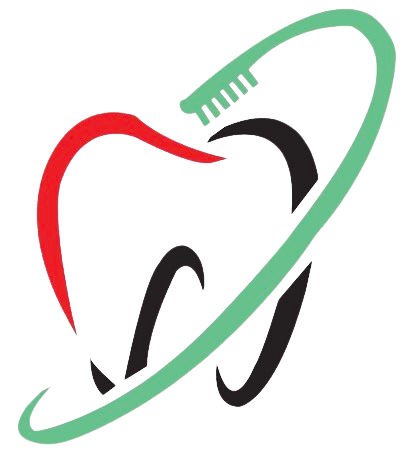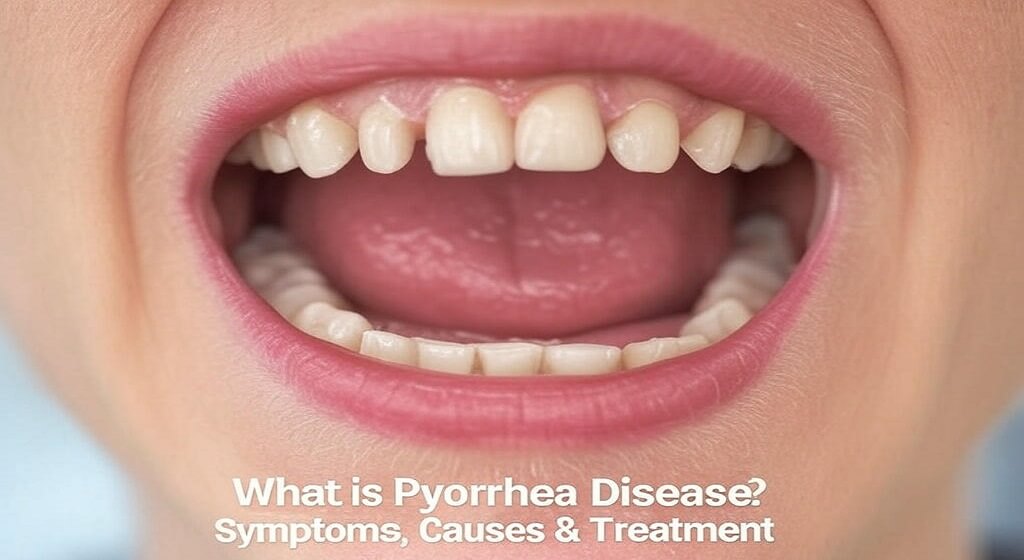Pyorrhea, a term often linked to severe gum infections, is a critical oral health issue affecting millions worldwide. Known medically as periodontitis , this condition silently damages gums and jawbones, leading to tooth loss if ignored.
But what exactly is pyorrhea disease? How does it develop, and can it be cured? In this guide, we’ll explore everything you need to know about pyorrhea symptoms , causes, treatments, and prevention strategies to safeguard your smile.
What is Pyorrhea Disease?
Pyorrhea, derived from the Greek words “pyon” (pus) and “rhoia” (flow), refers to inflammation of the gums accompanied by pus discharge. It is the advanced stage of gum disease , starting as gingivitis (mild gum inflammation) and progressing to destroy gum tissue and bone.
Key Fact: Pyorrhea affects 10-15% of adults globally , making it a leading cause of tooth loss in people over 30.
Pyorrhea Symptoms: How to Recognize the Warning Signs?
Early detection is crucial to prevent irreversible damage. Watch for these pyorrhea symptoms :
- Bleeding Gums : Gums bleed easily during brushing, flossing, or even eating.
- Swollen, Red Gums : Inflammation and tenderness in gum tissue.
- Persistent Bad Breath : Caused by bacterial buildup and infection.
- Receding Gums : Teeth appear longer due to gum tissue pulling away.
- Pus Between Teeth : Visible pus pockets signal advanced infection.
- Loose Teeth : Bone loss weakens tooth support, causing mobility.
- Changes in Bite : Teeth may shift, altering how they fit together.
Why These Symptoms Matter:
Pro Tip: If you notice these signs, consult a dentist immediately. Early intervention can reverse damage!
Root Causes of Pyorrhea Disease
Pyorrhea doesn’t develop overnight. It’s the result of poor oral hygiene and other risk factors:
1. Bacterial Plaque Buildup
- The primary culprit! Plaque (a sticky film of bacteria) hardens into tartar , irritating gums and causing infection.
2. Lifestyle Factors
- Smoking/Tobacco Use : Reduces blood flow to gums, slowing healing.
- Poor Diet : High sugar intake fuels bacterial growth.
- Stress : Weakens immunity, making gums vulnerable.
3. Medical Conditions
- Diabetes : Increases susceptibility to infections.
- Hormonal Changes : Pregnancy or menopause can worsen gum sensitivity.
- Genetics : Some people are predisposed to gum disease.
4. Medications
- Drugs causing dry mouth (e.g., antidepressants) reduce saliva, which protects gums.
Is Pyorrhea Curable?
Yes, but with caveats.
- Early-stage pyorrhea (gingivitis) is 100% reversible with professional cleaning and improved oral care.
- Advanced pyorrhea (periodontitis) requires surgical intervention to manage, but bone and tissue loss cannot be fully reversed.
Key Takeaway: The sooner you act, the higher the chance of saving your teeth!
Pyorrhea Treatment: Restoring Gum Health
Treatment depends on the severity of the infection. Here’s a breakdown:
1. Non-Surgical Treatments
- Scaling and Root Planing : Deep cleaning to remove plaque/tartar and smooth tooth roots.
- Antibiotics : Oral or topical meds (e.g., mouth rinses) to fight infection.
2. Surgical Options
- Flap Surgery : Gum tissue is lifted to remove deep-seated tartar.
- Bone Grafts : Replace bone destroyed by infection.
- Gum Grafts : Repair receding gums using tissue from your palate.
3. Lifestyle Changes
- Quit smoking.
- Use an antiseptic mouthwash.
- Brush twice daily with a soft-bristled toothbrush.
At Shivam Dentals Clinic , our periodontal experts use cutting-edge techniques like laser therapy for pain-free pyorrhea treatment.
How to Treat Pyorrhea at Home
While professional care is essential, these steps support recovery:
- Oil Pulling : Swish coconut oil for 15 minutes to reduce bacteria.
- Saltwater Rinse : Mix 1 tsp salt in warm water to soothe gums.
- Vitamin C Boost : Citrus fruits and leafy greens strengthen gums.
Caution: Home remedies cannot replace dental care . Always consult your dentist!
Preventing Pyorrhea: Tips for Healthy Gums
- Brush & Floss Daily : Spend 2 minutes brushing, and don’t skip flossing.
- Regular Dental Visits : Get checkups every 6 months.
- Stay Hydrated : Water flushes out food particles and bacteria.
- Avoid Sugary Snacks : Especially sticky candies that cling to teeth.
FAQs About Pyorrhea Disease
Q1. How long does pyorrhea treatment take?
A: Mild cases resolve in weeks with cleaning. Severe cases may require months of therapy.
Q2. Can pyorrhea spread to others?
A: No, but bacteria in saliva can transmit via shared utensils. Maintain hygiene!
Q3. Is pyorrhea linked to heart disease?
A: Yes! Gum infections increase the risk of cardiovascular issues due to inflammation.
Conclusion
Pyorrhea disease is a silent threat, but awareness and proactive care can protect your oral health. Whether you’re battling early symptoms or seeking preventive strategies, Shivam Dentals Clinic offers personalized solutions to keep your gums healthy. Don’t wait—schedule a consultation today and take the first step toward a pain-free smile!

